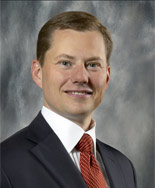The code word at HIMSS 2009 is interoperability


UnitedHealth is no exception. Don't look at the accusations of self-dealing at its Ingenix unit or the options scandal that forced out its CEO two years ago. Let's talk instead about eSync, created by its OptumHealth unit to synchronize its health care data to improve care and reduce costs.
Rob Webb is CEO of OptumHealth. A graduate of the University of Minnesota (go Gophers) and Northwestern's Kellogg School of Management (go Wildcats), he is naturally proud of of the effort.
"It has taken us 3 years of very intensive effort, a lot of capital. We've had to integrate many different databases. A lot of it was the healthcare system bases, which is why this is such a revolutionary advance," he told ZDNet.
"This solves the problem of getting into our data warehouse, but we're looking to in a broader reform is better ease of getting information into our systems. EMRs, the ability for us to have a format we can input, that's exciting to us."
While the resulting system is proprietary, Webb said it delivers enormous public benefit.
"We're tapping into a variety of different data sources, including pharmaceutical data, lab data, information health coaches may enter and the like. We are running that information against evidence-based medicine, based on peer review, literature and studies."
The result is that the database covering 24 million patients can engage with those patients through whatever system they desire, including Microsoft's HealthVault PHR program.
Where is this heading?
"We do envision a world like the financial world, where they standardized formats and expanded the universe of financial institutions so now you can click and download your financial information."
Those who fear some sort of federal database that will control their health care based on comparative effectiveness should note that's what UnitedHealth has today.